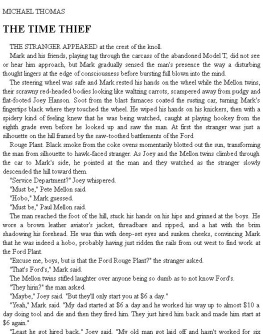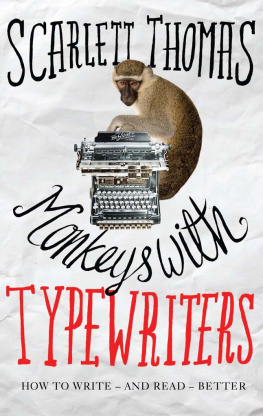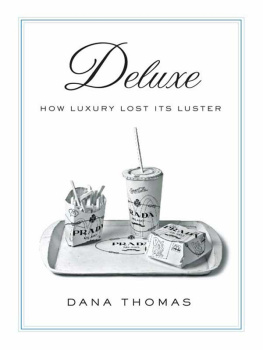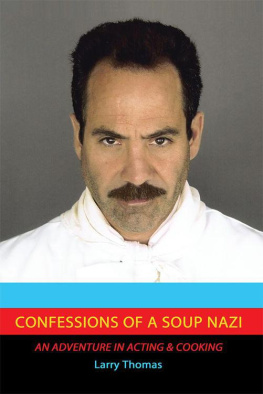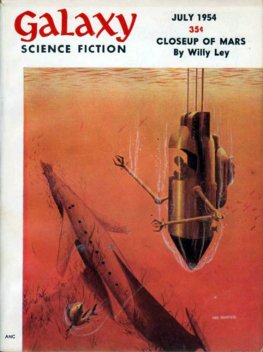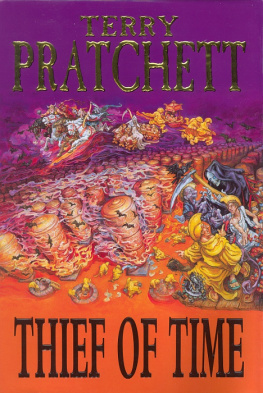Thomas - The Time Thief
Here you can read online Thomas - The Time Thief full text of the book (entire story) in english for free. Download pdf and epub, get meaning, cover and reviews about this ebook. year: 2010, genre: Detective and thriller. Description of the work, (preface) as well as reviews are available. Best literature library LitArk.com created for fans of good reading and offers a wide selection of genres:
Romance novel
Science fiction
Adventure
Detective
Science
History
Home and family
Prose
Art
Politics
Computer
Non-fiction
Religion
Business
Children
Humor
Choose a favorite category and find really read worthwhile books. Enjoy immersion in the world of imagination, feel the emotions of the characters or learn something new for yourself, make an fascinating discovery.
- Book:The Time Thief
- Author:
- Genre:
- Year:2010
- Rating:5 / 5
- Favourites:Add to favourites
- Your mark:
- 100
- 1
- 2
- 3
- 4
- 5
The Time Thief: summary, description and annotation
We offer to read an annotation, description, summary or preface (depends on what the author of the book "The Time Thief" wrote himself). If you haven't found the necessary information about the book — write in the comments, we will try to find it.
Thomas: author's other books
Who wrote The Time Thief? Find out the surname, the name of the author of the book and a list of all author's works by series.
The Time Thief — read online for free the complete book (whole text) full work
Below is the text of the book, divided by pages. System saving the place of the last page read, allows you to conveniently read the book "The Time Thief" online for free, without having to search again every time where you left off. Put a bookmark, and you can go to the page where you finished reading at any time.
Font size:
Interval:
Bookmark:
MICHAEL THOMAS
THE STRANGER APPEARED at the crest of the knoll.
Mark and his friends, playing tag through the carcass of the abandoned Model T, did not see or hear him approach, but Mark gradually sensed the man's presence the way a disturbing thought lingers at the edge of consciousness before bursting full blown into the mind.
The steering wheel was safe and Mark rested his hands on the wheel while the Mellon twins, their scrawny red-headed bodies looking like waltzing carrots, scampered away from pudgy and flat-footed Joey Hanson. Soot from the blast furnaces coated the rusting car, turning Mark's fingertips black where they touched the wheel. He wiped his hands on his knickers, then with a spidery kind of feeling knew that he was being watched, caught at playing hookey from the eighth grade even before he looked up and saw the man. At first the stranger was just a silhouette on the hill framed by the saw-toothed battlements of the Ford
Rouge Plant. Black smoke from the coke ovens momentarily blotted out the sun, transforming the man from silhouette to hawk-faced stranger. As Joey and the Mellon twins climbed through the car to Mark's side, he pointed at the man and they watched as the stranger slowly descended the hill toward them.
"Service Department?" Joey whispered.
"Must be," Pete Mellon said.
"Hobo," Mark guessed.
"Must be," Paul Mellon said.
The man reached the foot of the hill, stuck his hands on his hips and grinned at the boys. He wore a brown leather aviator's jacket, threadbare and ripped, and a hat with the brim shadowing his forehead. He was thin with deep-set eyes and sunken cheeks, convincing Mark that he was indeed a hobo, probably having just ridden the rails from out west to find work at the Ford Plant.
"Excuse me, boys, but is that the Ford Rouge Plant?" the stranger asked.
"That's Ford's," Mark said.
The Mellon twins stifled laughter over anyone being so dumb as to not know Ford's.
"They hirin?" the man asked.
"Maybe," Joey said. "But they'll only start you at $6 a day."
"Yeah," Mark said. "My dad started at $6 a day and he worked his way up to almost $10 a day doing tool and die and then they fired him. They just hired him back and made him start at $6 again."
"Least he got hired back," Joey said. "My old man got laid off and hasn't worked for six months."
Mark blushed and studied his shoes; he should have been happy that his father was back to work, but he felt awkward, almost ashamed of the fact around his friends whose fathers were still jobless and broke. The Mellon family took in boarders, Joey's mother cleaned houses to make sure they had food. So Mark should have felt lucky, but actually felt ashamed, a feeling which had become his natural state.
For as long as he could remember his father had swung on a demented pendulum between working overtime six days a week and losing his job. With each swing of the pendulum, Mark's shame grew worse; it always seemed as if his father lost his job because there was something wrong with him or with the family. The first time it happened, men from the Ford Sociological Department came to inspect the house and the family to make sure they were living decently and were deserving of his father's profit-sharing bonus. No one knew exactly what standards old Henry Ford thought were befitting a bonus, but whatever they were, the men in suits who poked and prodded through the dirty laundry and examined the pantry for liquor bottles found no evidence that Mark's family lived up to their quality control. Not only did his father lose his profit-sharing bonus, he lost his job. Now, the Sociological Department was gone, but in the ten years since, his father had been rehired five times and lost his job four times, always for some reason that implied it was the man's own fault, or the family's fault, and each time Mark's shame grew deeper.
"Sounds like things are tough around here," the stranger said.
"Mister, where you been?" Joey laughed, puckering his pudgy face. "It's hard times. But things is gonna change. There's gonna be a march on the plant and they say thousands of guys is gonna .... "
Mark jabbed an elbow into Joey's ribs.
"Ow! What's the big idea?"
"You shouldn't go talking to strangers about things," Mark whispered. Pete Mellon's eyes formed discs beneath his mop of red hair. "Yeah. He might be a Service Department spy."
"Service Department spy," his brother said. The stranger chuckled to himself, his lips curling upward, bunching his thin face into a death's head grin. "Has there ever been a march on the plant?"
"Guess not," Mark said.
The man nodded, more to himself than to the boys. "Then this is the fight one," he said. "It's 1932." He tipped his hat and said, "Much obliged. You boys have yourself a good day." He started back up the hill, hesitated, turned and tossed a quarter to each boy.
"Geez, thanks, mister," Joey called after him. Mark fingered his quarter and watched the stranger disappear over the rise of the hill as if the smoke and flames and massive walls of the plant were a dragon that had swallowed the man whole. Then the man reappeared and beckoned them with a crook of his finger.
"Let's run," Pete Mellon said.
"Run," Paul said.
"I ain't going up there," Joey said.
Drawn for some reason he could not understand, Mark climbed the hill and stared down with the stranger at the plant. It stretched like its own dark city all the way to the Rouge River where freighters docked and skeletal gantries unloaded the ore. Lines of smokestacks carved a fence pattern across the sky, the buildings housing the assembly lines crowded each other like the caves of some race of toiling dwarves, and over all the smoke from the blast furnaces wrapped the plant in a shroud.
The stranger pointed and said, "Is that Miller Road down there?"
"Yep," Mark said.
The stranger nodded. "By the way, do you know .... "The man hesitated, then shook his head. "Never mind. It's better if I find him myself." Mark waited, but the man only went on staring at the craggy summits of the blast furnaces. At last, Mark turned and raced down the hill. It was a warm day for March, but Mark shivered. With a start, he realized he was frightened, not knowing why, only knowing the stranger's appearance was an omen, as unlucky as walking under a ladder.
THE BOYS DEBATED what to do with their quarters, the Mellons wanting to see Scarface and Joey and Mark holding out for parfaits at Henderson's Drug Store. At last the parfaits won and the boys sat at the counter, eating with long-handled spoons, speculating about the stranger.
"Maybe he's a communist," Pete Mellon said.
"I still think he's Service Department," Joey Hanson said.
"He's just a hobo," Mark said.
As they talked, Mark's conviction about the man weakened. Something about the stranger, something knowing in the sunken eyes made him sure the man was much more than a hobo. But he couldn't believe the man was one of the goons from the
Ford Service Department. Goons always wore suits and ties. Still, there was something not quite right about the man. Maybe Joey was right, maybe the guy was a spy trying to find out about the Hunger March.
He sipped melted ice cream from the bottom of the glass with a straw, then smelled aftershave and his mood brightened.
"How's my favorites?" Randy Randolph said. He sat on a swivel stool at the counter, played with one of his ruby rings, straightened his tie, smoothed his greased-back hair. Randy had the look of an eager Doberman pinscher and just about as much fashion sense, but to Mark he was as heroic as Charles Lindbergh.
Randy started out life like them, living off the Ford Plant like rats living off a garbage dump, but now Randy dressed better than a politician and had no fear of layoffs or the Service Department. Randy was the lord of numbers; his masters weren't foremen, but the kind of guys you saw in movies, riding the running boards of cars, Tommy guns in hand.
Next pageFont size:
Interval:
Bookmark:
Similar books «The Time Thief»
Look at similar books to The Time Thief. We have selected literature similar in name and meaning in the hope of providing readers with more options to find new, interesting, not yet read works.
Discussion, reviews of the book The Time Thief and just readers' own opinions. Leave your comments, write what you think about the work, its meaning or the main characters. Specify what exactly you liked and what you didn't like, and why you think so.

